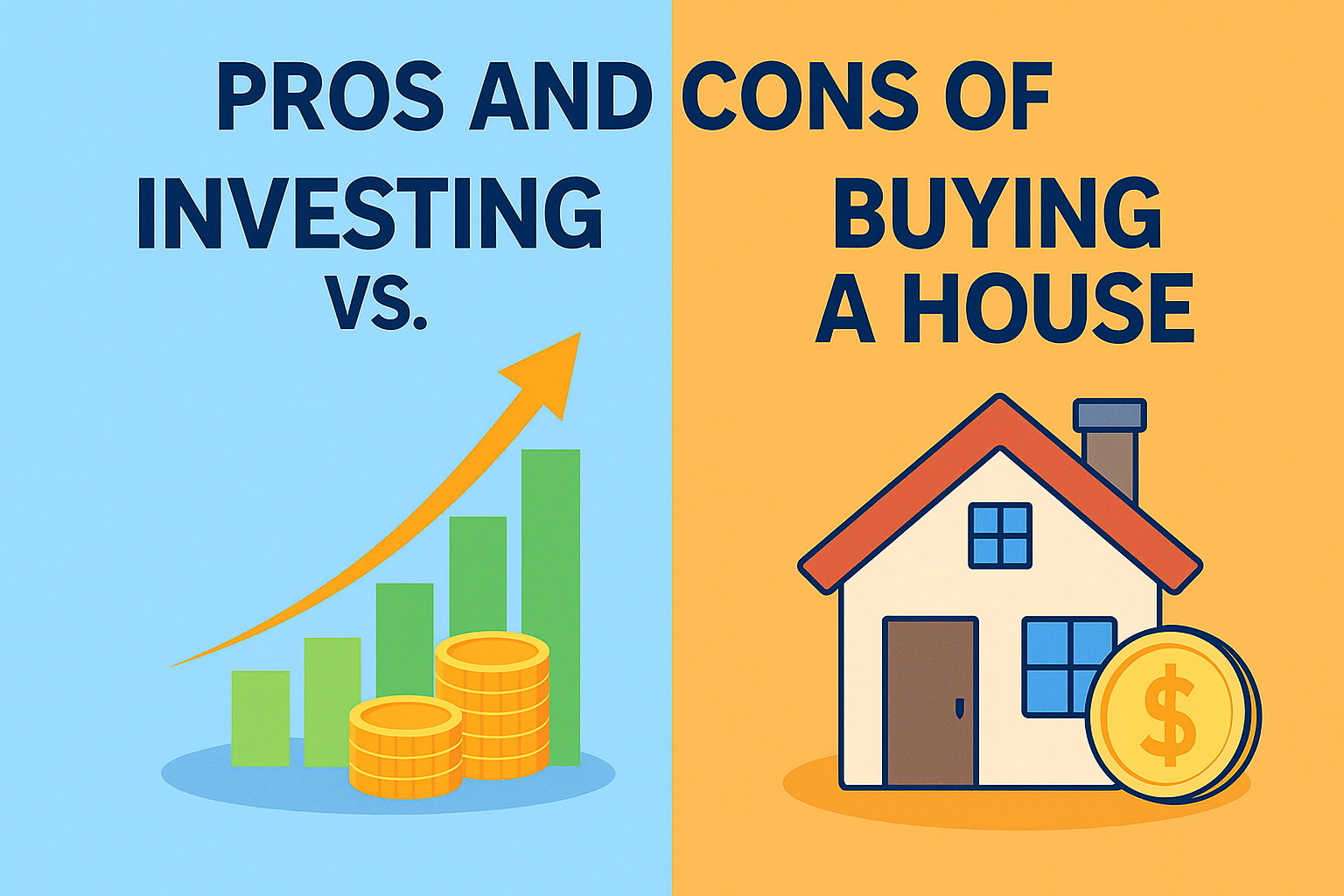Investing vs. Buying a House: Pros and Cons
Should you put your money into the stock market or buy a house? It’s one of the most common financial debates — and for good reason. Both investing and buying property can be powerful wealth-building strategies, but they work in very different ways.
In this post, we’ll break down the pros and cons of each approach so you can decide what makes the most sense for your financial goals.
Buying a House
Pros
- Forced Savings – When you pay a mortgage, part of your payment goes toward building equity, essentially turning a portion of your housing costs into an investment in yourself.
- Appreciation Potential – Historically, U.S. home prices have increased an average of about 3–5% per year over the long term, according to Federal Reserve Economic Data.
- Tangible Asset – Unlike stocks, you can live in your home, rent it out, or pass it down to family.
- Tax Benefits – In some countries (including the U.S.), homeowners may deduct mortgage interest and property taxes from taxable income, depending on current tax laws.
Cons
- High Upfront Costs – Down payments, closing costs, inspections, and moving expenses can easily total tens of thousands of dollars.
- Ongoing Expenses – Homeownership comes with maintenance, property taxes, insurance, and sometimes HOA fees. These can add up to 1–4% of the home’s value each year.
- Illiquidity – Selling a home can take weeks or months, and market conditions may force you to sell for less than you hoped.
- Market Risk – Home values can drop, as seen during the 2008 housing crisis, leaving some homeowners “underwater” on their mortgage.
Investing in the Stock Market (Stocks, ETFs, Bonds, etc.)
Pros
- Liquidity – Stocks and ETFs can be bought or sold in seconds, giving you access to your money quickly.
- Diversification – With mutual funds and ETFs, you can invest across hundreds of companies and industries to reduce risk.
- Lower Entry Point – You can start with as little as $100 — in fact, here’s a guide on how to start investing with just $100.
- Higher Historical Returns – The S&P 500 has delivered nominal average annual returns of roughly 10–12% over recent decades, with inflation-adjusted gains closer to 6–8%, depending on the period reference.
Cons
- Volatility – Stock prices can swing wildly in the short term, which can be stressful for new investors.
- No Tangible Use – You can’t live in your stocks or ETFs; they’re purely financial assets.
- Emotional Risk – The temptation to sell during downturns can lead to poor long-term results.
Which is Right for You?
The answer depends on your personal goals, risk tolerance, and financial situation. Here are a few scenarios:
- Buy a house if you want stability, plan to stay in one place for 5+ years, and value the security of owning a home.
- Invest in the market if you want liquidity, are comfortable with market swings, and aim for higher potential returns over time.
- Do both if possible — buy a modest home and invest regularly to balance stability with growth.
Key Takeaways
- Real estate offers stability and tangible benefits but comes with high upfront and ongoing costs.
- Investing offers liquidity and higher historical returns but requires emotional discipline and tolerance for volatility.
- The best strategy often involves a combination of both, tailored to your goals.
Whether you choose real estate, investing, or a mix of both, the important thing is to start building wealth as early as possible and stick to your plan.
Disclaimer
This article is for informational purposes only and does not constitute financial advice. Always consult a qualified financial advisor before making major investment or purchasing decisions.
